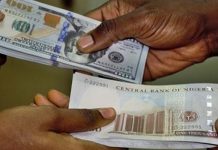The British Pound Sterling, on Wednesday, July 19, slid back towards $1.30, adding to falls the previous day after weak inflation data poured cold water on expectations that the Bank of England will hike rates this year.
The pound had risen above $1.31 to ten-month highs earlier in the week as the dollar fell across the board, and as investors bet that the 25-basis-point cut in British interest rates after last year’s vote for Brexit could be reversed in the coming months, Reuters reports.
Sterling was 0.1 percent lower on Wednesday at $1.3026, still not far from a high of $1.3126 touched the previous day. Against the euro, it was a little higher at 88.425 pence, but only around a cent away from an eight-month low hit last week.
Having priced in a more than 50-percent chance of a 2017 hike before the data, investors are now pricing in only around a 40-percent chance, according to UBS Wealth Management currency strategist Geoffrey Yu. And even that, said Yu, looked too high, given that markets were pricing in a similar chance of a hike this year by the U.S. Federal Reserve.
“The fact that we’re still hovering around here I think is more of a dollar story than a UK story,” said Yu. “You’re seeing where euro/sterling is trading right now.”
“I still find it very surprising that we’re thinking the UK is about as likely to hike this year as the U.S.,” he added. “The bar is higher to push sterling higher based on Bank of England pricing versus a fade of that trade, so it (sterling) is quite asymmetrically positioned right now.”
Tuesday’s numbers showed consumer prices rose by 2.6 percent in June compared with a year earlier, down from a nearly four-year high of 2.9 percent in May.
“Even though both the headline and the core rates remain notably above the target, their decline eases some pressure on the BoE to raise rates in order to curb overshooting inflation,” wrote IronFX analyst Charalambos Pissouros in a note to clients.
The market is watching developments in Brussels closely, where Brexit secretary David Davis is in negotiations with the EU’s Michel Barnier to get a deal for Britain to leave the bloc. Any signs that Britain could lose preferential access to Europe’s single market are likely to weigh on the currency.















